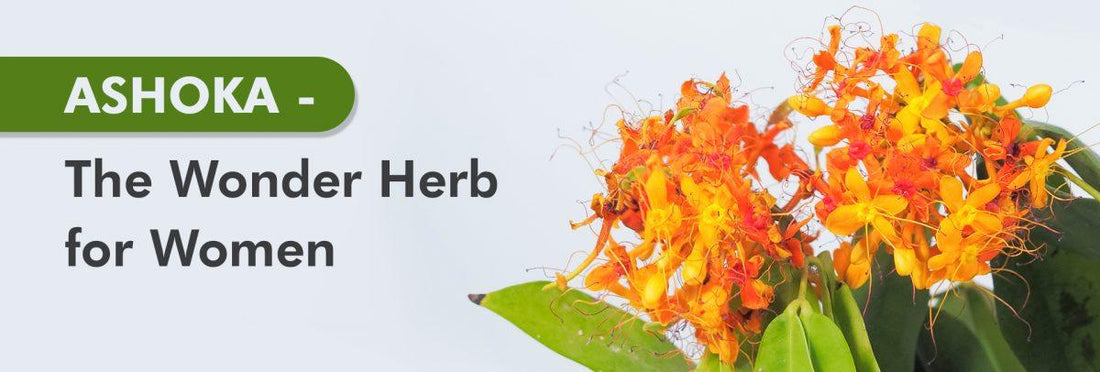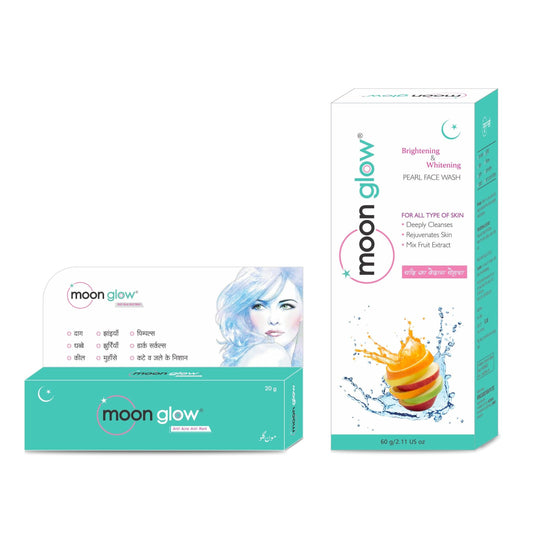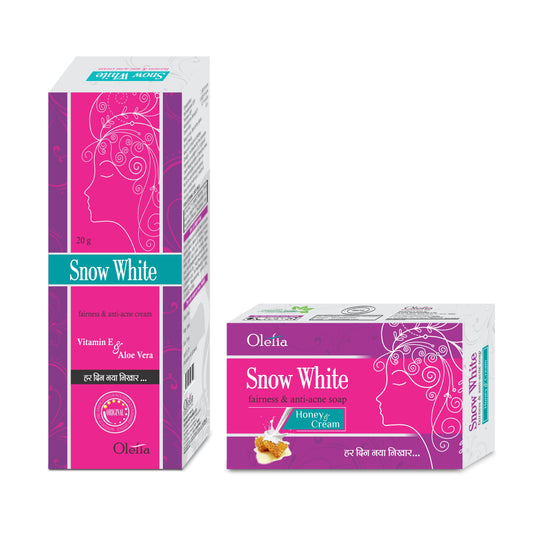Ashoka, known as the Ashoka briksh is one of the most ancient and sacred trees found all over India. Ashoka has various medicinal properties, especially its bark and leaves.
Ashoka helps to manage various gynecological and menstrual problems in women such as heavy, irregular and painful periods. Taking Ashoka bark juice or kwath can also promote healthy skin due to its blood purifying property.
According to Ayurveda, Ashoka is useful in controlling internal bleeding, especially in the case of piles due to its Kasaya (astringent) property. It is also beneficial in relieving pain and healing wounds faster due to its Ropan (healing) property. Applying Ashoka bark juice or kwath on the skin helps to get rid of oily and dull skin.
BENEFITS OF ASHOKA FOR WOMEN'S HEALTH
- Painful periods (Dysmenorrhea)
Dysmenorrhea is the pain or cramps during or before a menstrual period. In Ayurveda, this condition is known as Kasht-aartava. According to Ayurveda, Aartava or Menstruation is controlled and governed by Vata dosha. So it is important that in a woman, Vata should be under control to manage dysmenorrhea. Ashoka has Vata balancing property and gives relief in dysmenorrhea. It controls aggravated Vata and reduces abdominal pain and cramps during the menstrual cycle.
- Heavy menstrual bleeding (Menorrhagia)
Menorrhagia or heavy menstrual bleeding is known as Raktapradar or excessive secretion of menstrual blood. This is due to an aggravated Pitta dosha. Ashoka balances an aggravated Pitta and controls heavy menstrual bleeding or menorrhagia. This is due to its Sita (cold) properties
- Piles
Piles are known as Arsh in Ayurveda which is caused by an unhealthy diet and a sedentary lifestyle. This leads to the impairment of all the three doshas, mainly Vata. An aggravated Vata causes a low digestive fire, leading to constipation. This causes swelling in the veins in the rectum area leading to pile mass. Ashoka gives relief in swelling of pile mass by balancing Vata. Ashoka also reduces burning sensation and discomfort in piles due to its Sita (cold) nature. It gives cooling effects and reduces burning sensations in the anus.
- Leucorrhea
Leucorrhea is a thick, whitish discharge from the female genitals. According to Ayurveda, leucorrhea is due to an imbalance of Kapha dosha. Ashoka shows a good result in leucorrhea because of its Kashaya (astringent) property. It helps to control aggravated Kapha and reduce the symptoms of leucorrhea.
- Uterine tonic
The herb stimulates the uterus, making helpful contractions more frequent and prolonged. Ashoka also has an astringent but stimulating effect on the endometrium and the ovarian tissues, and is useful in many gynecological problems, such as uterine bleeding associated with fibroids and the treatment of Leucorrhea. Ashoka has been efficacious in regularizing menstrual disturbances without producing any side effects. Its effect on the ovarian tissue may produce an estrogen-like activity that enhances the repair of the endometrium and stops bleeding. In metrorrhagia, in addition to decreasing the uterine bleeding, it regularizes the interval between two cycles. Besides treating the symptoms of fatigue and generalized weakness, the use of Ashoka provides immense relief from painful menses, the premenstrual syndrome, and non-specific white discharge [leukorrhea]
In addition to its aforementioned uses, Ashoka is considered beneficial in the treatment of dyspepsia and indigestion, thirst, burning sensation, blood disorders, fractures, tumors (unexplained swellings), and for colic and menstrual cramps; topically it is used for treating bites, ulcerations, and skin discoloration.






